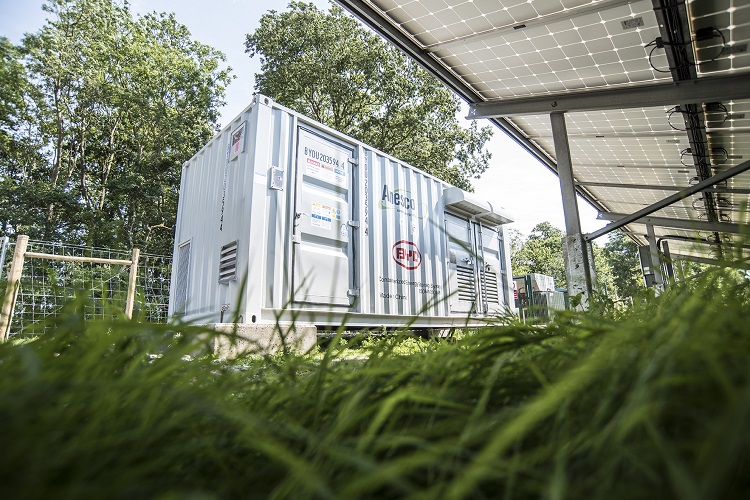RK Singh, India’s minister for Power and New & Renewable Energy, shared that a SECI auction for the installation of a 500 MW/1000 MWh battery energy storage system (BESS) has yielded a capacity charge of minimum INR 10.83 lac/MW/month, or INR 10.18 ($0.12)/kWh.
The minister told that to make battery storage affordable, the government has approved a viability gap funding scheme for setting up 4 GWh of BESS. The Scheme provides VGF up to 40% of the capital cost for BESS, which will bring down the cost of electricity from BESS.
Further, the Ministry of Heavy Industries (MHI), in June 2021, launched a Production-Linked Incentive (PLI) scheme for the manufacturing of advanced chemistry cell (ACC) battery storage of 50 GWh capacity, which includes more than 10 GWh grid-scale battery storage. Out of 50 GWh capacity, 30 GWh capacity has already been allotted through a competitive bidding process. The PLI-ACC scheme has an outlay of INR 18,100 crore.
The minister said the PLI scheme would encourage investment in the domestic manufacturing of cells for grid-scale applications, reduce dependency on imports, and result in a reduction of the BESS cost in future.
This content is protected by copyright and may not be reused. If you want to cooperate with us and would like to reuse some of our content, please contact: editors@pv-magazine.com.









2 comments
By submitting this form you agree to pv magazine using your data for the purposes of publishing your comment.
Your personal data will only be disclosed or otherwise transmitted to third parties for the purposes of spam filtering or if this is necessary for technical maintenance of the website. Any other transfer to third parties will not take place unless this is justified on the basis of applicable data protection regulations or if pv magazine is legally obliged to do so.
You may revoke this consent at any time with effect for the future, in which case your personal data will be deleted immediately. Otherwise, your data will be deleted if pv magazine has processed your request or the purpose of data storage is fulfilled.
Further information on data privacy can be found in our Data Protection Policy.